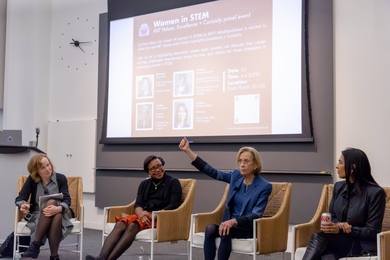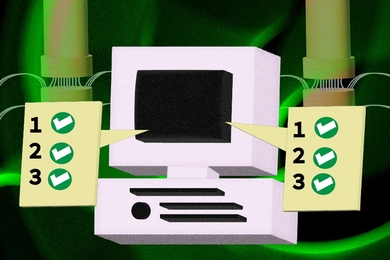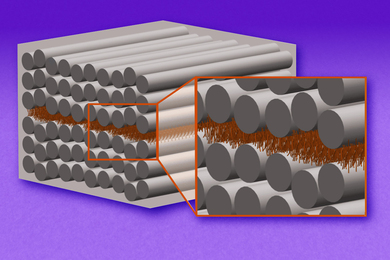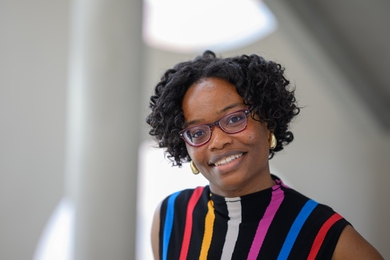Participation in UROP's IAP Mentor Program more than doubled since last year, with 71 pre-UROPers and 42 mentors taking part. UROP officials say enhancements introduced this year played a major role in this success.
The program, started in 1993, pairs undergraduates who lack research experience, usually freshmen (pre-UROPers), with upper-class experienced UROPers (mentors) on a part-time basis throughout January, with the permission of the mentors' faculty supervisors. Students are matched by interest and research area.
For the first time this year, pre-UROPers were asked to write formal evaluations of their experience. The positive feedback from these evaluations far surpassed UROP's expectations.
"Not only have I gained an in-depth knowledge of the subject, but I also gained a valuable friendship with my mentor, with the realization that MIT is not such an impersonal place after all," one student said. "I had such a positive experience that I will recommend pre-UROP to future freshmen."
Mentors met individually with UROP staff member Melissa Martin at the end of the month. Based on the interviews and the evaluations, UROP chose junior Danny C. Lai as the "Best IAP 1999 Research Mentor." Mr. Lai, who is majoring in electrical engineering and computer science, is working in the Sloan School's Systems Dynamics Group. He participated in the UROP Mentor Program as a freshman and tried to incorporate what he wished his mentor had covered into the teaching of his two pre-UROPers.
According to one of his pre-UROPers, Mr. Lai was "one of the best mentors because he not only taught us a lot about his UROP, but also cared enough to know us on a personal level." The other said Mr. Lai "worked his schedule to fit ours and made an extra effort to give us interesting and manageable work, so we learned on our own about the field and not just shadowed him." Both added that he provided them with background reading about the research, taught computer programs to them and assigned one-week projects throughout the month. The overwhelming message UROP received from participants was that this kind of research preparation is sorely needed.
The Mentor Program provides opportunities for pre-UROPers to socialize and work with upperclassmen, research faculty and staff in a non-classroom setting. Mentors learned how much time and effort are required for good teaching and said they gained respect for the demands placed on faculty supervisors. They said mentoring helped their organization and presentation skills, teaching them to put time and effort into scheduling lab hours and planning lessons. They also learned to consider the students' levels of experience-to be clear and concise, and recognize when explanations went over their pre-UROPers' heads.
Mentors receive $125 per pre-UROP student. Pre-UROPers get no pay or credit, but UROP gives them priority for funding if their mentor's faculty supervisor invites them to continue on the project. Nearly 20 percent of this year's pre-UROPers remained with their mentors' projects during the spring semester. The rest have gone on to find their own UROPs in other areas or said they chose to wait until summer since they lack time to commit to a UROP in the spring.
Given the success of this year's program and feedback from participants, UROP is planning additional enhancements for next year that will address scheduling difficulties, provide detailed guidelines for mentors and add a closing session for group feedback and discussion.
A version of this article appeared in the March 17, 1999 issue of MIT Tech Talk (Volume 43, Number 23).





